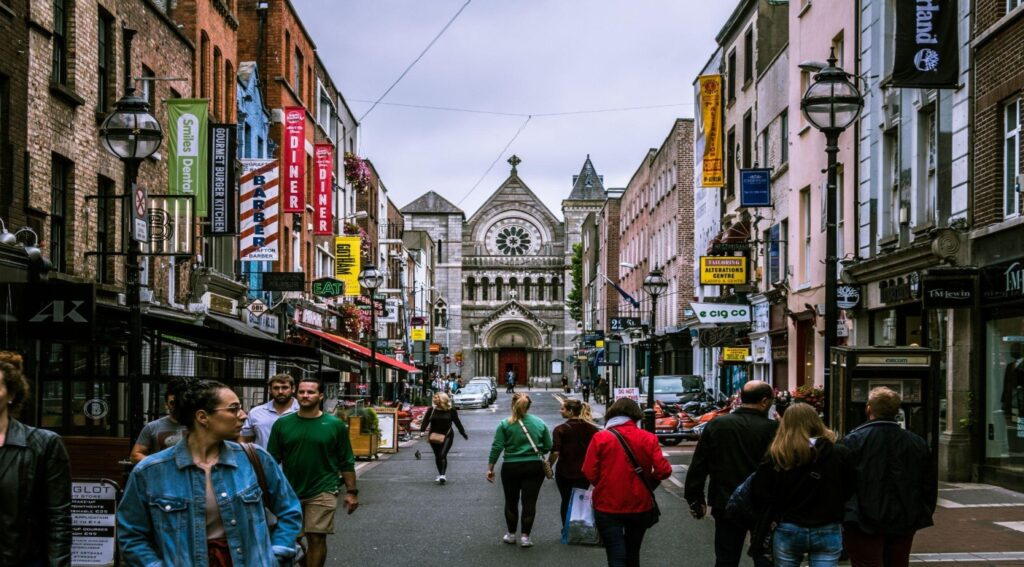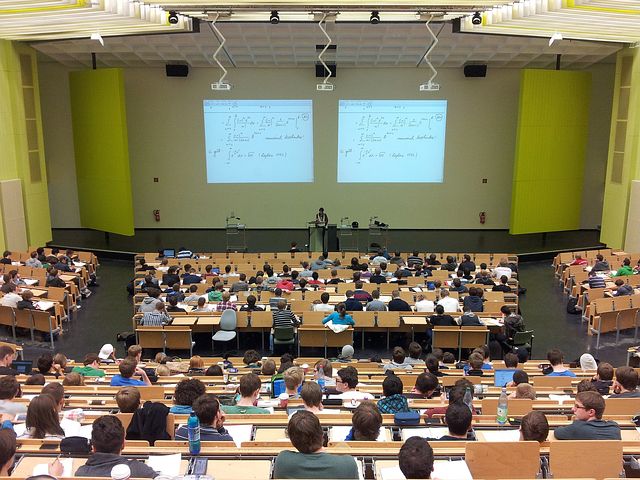Table of Contents
As students, we’ve always desired to pursue our education abroad, particularly in a location with breathtaking scenery, exquisite architecture, and rich history. If these things tickle your fancy, Ireland is the palace to go. Ireland, the fourth-highest educational standard, has emerged as the ideal location for students, especially Indian students, seeking a top-notch education. The nation is progressive, inventive, and safe and welcomes international students with open arms.

Some costs that a student might incur include the following:
Accommodation cost
Ireland ranks among the priciest places to live, particularly for Indian students. The cost of housing varies depending on the student’s living preferences, proximity to the university, healthcare facilities, study location, and other factors.
Students who choose on-campus housing or a hall of residence shares common amenities such as a kitchen, bathroom, and living room with 4-8 other students. The approximate cost of living on-campus is €2978- €4992 (INR 2,40,000-4,00,00) per session, including rent, electricity, food, books, laundry, Wi-Fi / Internet connection, water, and desk, etc. But excludes tuition fees.
The prices for an off-campus stay are exorbitant. Students can avail any one of the following housing types based on their preference :
- Many undergraduate students prefer to stay in homestays, also known as “digs” in Ireland. These are less expensive because the host family includes utilities, meals, and activities in the rent. Homestays cost €180 (INR 1,40.000) per month on average.
- Private rentals, such as apartments, studio apartments, and houses, are also available, but the rent will vary greatly depending on the number of rooms and the type of amenities desired. You can budget €350-€3,000 (INR 3,00,000-24,00,000) per month for rent.
- Long-term student hostels, though few, are an affordable option for students living off-campus in Ireland. Hostels are typically run by housing companies and include amenities similar to residence halls, with prices ranging from €5 to €112 per night.
- Purpose-built student housing is similar to halls, except that the number of people sharing is less than in hostels. It costs between €150-€273 per week.
It’s also worth noting that the cost of living rises as one gets closer to the university. For example, the average monthly rent for a two-room apartment in a city is around €1000-1200, and in the suburbs, it is around €800-€900. In addition, utilities such as electricity bills and maintenance fees would be the student’s responsibility.
Utilities
If you stay off-campus, you have to pay for the utilities like electricity, water, garbage, mobile tariff, etc. The average annual electricity bill for a two-bedroom apartment is €987 (INR 79,000). Prepaid mobile phone tariffs range from €0.13-0.40 per minute (INR 11-34). Internet plans range from €5-€60 (INR 4,228-5,075) per month.€100-300 (INR 8,457-25,372) per month for heating, water, garbage, and cooling.
Leisure
Most often, college students choose to blend dining out and cooking at home. Therefore, the cost of food and goods won’t be very high. The approximate monthly cost of goods is between €250-€350 (INR 22,000-30,000). If you select a three-course meal in a restaurant, you should be prepared to pay between €3- €55 (INR 2,600- 5,000). But if you are staying on campus, you won’t need to be concerned about that.
Movie and theatre tickets cost around €9. You can enroll in yoga and exercise sessions for a low joining cost of €29–€35(INR.
Indian students may also utilize their ID cards to receive special discounts on apparel, groceries, and other luxuries. This is quite helpful because occasionally food and other expenses can exceed budgets.
Transportation cost
Daily travel becomes a necessary part of your routine if you live off-campus. Therefore, one of the most popular ways for international students to commute to the university is through public transportation. One option for daily travel is a student travel card, which provides savings (up to 40%) and special deals on buses, trains, etc. You can also get a monthly bus pass for a reduced price, which is about €50-€55 (INR 4,500-5000) every month.
A bicycle may be rented for about €20 (INR 1,800) per day. If you stay on the campus of the university, you can ignore this expense.
Miscellaneous
Other expenses an international student has to fund include clothes, books, stationery, hygiene, and other personal costs. Books cost about €75 (INR 6,600) per month, social activities cost between €60 and €100 (INR 5,200 and 8,800), and movies and outings cost about €45 (INR 3,900) per month.
Although high-quality clothing and accessories are pricey, there are cheaper options like secondhand shops that are wonderful if you want to save money. But this might vary according to the students and the place they have opted for
Non-EU (non-European Union) students are not entitled to any free medical care off-campus, thus they must have their private insurance. All non-EEA (non-European economic area) students are expected to get private medical insurance while they are studying and living in Ireland. Private medical insurance should provide the student with coverage for any hospital stays, as well as coverage for illness and/or accident.

Living expenses compared to India
Living expenses in Ireland are 78% higher than in India, excluding the rent. However, the cost of living in India is quite low compared to other nations, and a student’s life often involves the following expenses:
Accommodation:
India is far less expensive than Ireland for overseas students. There are also less expensive lodging options available, however, renting a flat typically costs between INR 10,000-15,000 (€125-€190).
If you choose to live on campus, the living cost will range from INR 1.5lakh-2lakh (€1900-€2500) per year. The dormitories close to the university also provide a sharing option for about INR 5,000–10,000(€65-€125). Even staying as a paying guest is an option available to students, which is both handy and economical.
Utilities:
If you live on campus, utilities are handled by the hostel management itself. Few colleges even provide Wi-Fi/internet services to students. But if you stay off-campus, you have to bear the expenses for the utilities like electricity, mobile tariff, water, Wi-Fi/internet services, etc. The average monthly expenditure for two people was somewhat around INR 5000 (€65).
Travel expenses:
If you decide to live off-campus, the majority of students prefer public transportation because it is relatively affordable and efficient, despite being highly busy. On average, students can see themselves spending around INR 300-500 (€4-€6) per week on transportation.
For added convenience, you can purchase a monthly pass for the public transportation system. There are also specific student discounts available. You can even rent a car for INR 1,30,000 (€1617) per month.
Leisure:
If you live off-campus, you need to do your grocery shopping. In India, it is very affordable as the average cost of groceries for two people is around INR 45000-50000 (€560-€630). You can also hire a cook for yourself, but the price will depend upon place to place. Students can also indulge in festivals, concerts, games, and movies inexpensively. Weekly entertainment is estimated to be around INR 2000-5000 (€25-€62) but mostly depends on an individual’s spending habits.
Miscellaneous:
Shopping in India is very inexpensive. You can roam around the streets and find many shops selling stationery, books, clothes, etc. at an extremely low rate .India also has high-end malls and shops, so you, as a student, have a lot of options to choose from.
Even health care and personal care items are very economical and easily accessible.
However, India’s overall cost of living is incredibly low compared to Ireland. Even expensive cities are thought to be more affordable than other places worldwide. Due to its accessible lifestyle and high standard of education, India has been able to draw in numerous international students. As a result, it has grown to be one of the most well-liked places to study.
The Average cost of living in Ireland:
The estimated living cost in Ireland for international students is around €7,000-12,000(INR 5,60,000-9,60,000) per year, with an average of €2,700 (~2.26 lakh INR) per month excluding study expenses. In addition, food, public transportation, mobile, internet, books and supplies, and other utility costs will be part of your living expenses.
An approximate monthly cost of €300–650 (INR 26,000–57,000) if you decide to live on campus. Rent, which typically costs €427 (INR 34,000) per month, as well as other living expenses must be factored into your budget.
Off-campus housing in Ireland requires rent to be paid monthly, with a typical lease term of 9 to 12 months. You might also need to pay a security deposit to reserve a room. It costs €400–900 (INR 35,000–80,000) per month to live individually as a student in an apartment.
Additionally, to stay in Ireland, you must have health insurance. The minimum yearly fee is approximately €394( INR 32,000). Students can choose either a Private Medical Insurance Policy or a Group Scheme offered by the university. A Premium Group Insurance Scheme can range from €100-€150 ( INR 8000- 12,000).
Despite its high living costs, Ireland is one of the best places for international students to study. The place provides an ideal balance of lush green countryside and urban living. It is an ideal location for international students as it offers world-class institutions and exclusive courses. Ireland has become a center of attention for many leading companies over time, providing students with numerous job opportunities. The spot is safe, clean, and peaceful, and it offers a holistic experience.
Tips for International students
Choosing to study in Ireland is very exciting, but it requires a lot of pre-planning. Below are some tips that might help you navigate your way in a foreign land:
- Make a budget for yourself.
- Develop your language skills.
- Join a club/society.
- Explore your interests and hobbies.
- Immerse yourself in the culture
- Know the local laws
- Build a strong network of support.
- Try new delicacies, but make sure to stay healthy.
- Be prepared with all the necessary books and stationery.
- Get to know your campus.
- Don’t be shy to ask something if you are in trouble.













